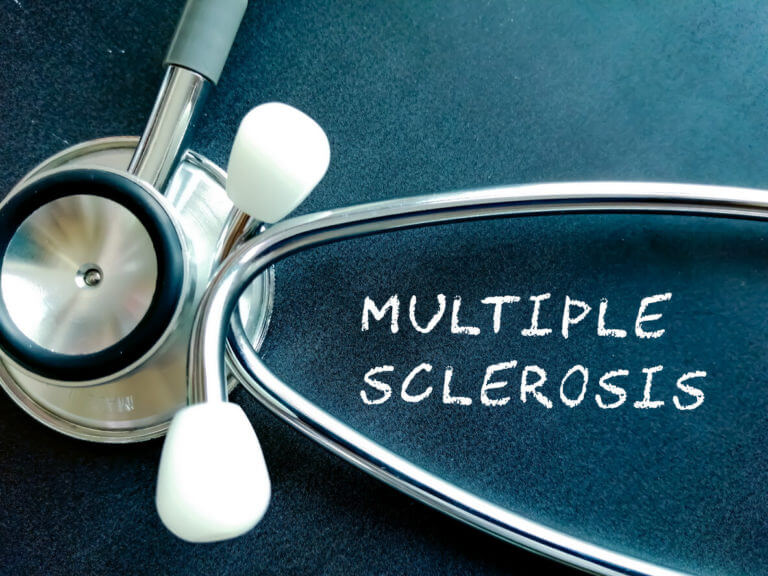
Multiple sclerosis, or MS, is an autoimmune disease in which the immune system mistakenly attacks the central nervous system. This results in the loss of protective myelin surrounding nerves, causing communication problems in the body. Symptoms vary but can include fatigue, muscle weakness, vision problems, and difficulty with coordination.
One of the greatest challenges with multiple sclerosis treatment is that it often mimics other diseases. Conditions like Lyme disease, lupus, and vitamin deficiencies can present with similar symptoms, delaying proper care if improperly diagnosed. Accurate diagnosis ensures timely intervention and improves quality of life.
Let us discuss how multiple sclerosis is diagnosed and what treatments are available.
How Is Multiple Sclerosis Diagnosed
Diagnosing multiple sclerosis involves evaluating symptoms and performing various tests to confirm the presence of the condition. The diagnostic process often involves the following steps:
1. Reviewing Medical History and Symptoms
Doctors begin by discussing the patient’s medical history and examining symptoms. Common symptoms include numbness, tingling sensations, muscle weakness, coordination problems, and vision changes.
A neurologist will ask questions about the occurrence, duration, and intensity of symptoms.
2. Neurological Examination
A neurologist conducts a thorough neurological examination to evaluate coordination, reflexes, muscle strength, and sensory responses. Any abnormalities in these areas can provide evidence of neurological damage consistent with multiple sclerosis.
3. Magnetic Resonance Imaging (MRI)
MRI is considered the gold standard for diagnosing multiple sclerosis. It helps identify areas of inflammation and myelin damage in the brain or spinal cord by producing detailed images.
Contrast agents may be used during an MRI scan to highlight active lesions indicative of ongoing disease activity.
4. Lumbar Puncture (Spinal Tap)
If necessary, a lumbar puncture may be performed to collect cerebrospinal fluid from the lower back. This fluid is analyzed for abnormal immune cells or proteins associated with multiple sclerosis.
While this test is not always required, it can help confirm the diagnosis in unclear cases.
5. Evoked Potential Tests
Evoked potential tests measure the electrical activity in the brain in response to specific stimuli, such as visual or sensory prompts. These tests can detect nerve damage that may not be apparent during a neurological examination.
6. Exclusion of Other Conditions
Finally, multiple sclerosis treatment involves excluding other medical conditions that may cause similar symptoms.
Conditions such as lupus, infections, and vitamin deficiencies must be ruled out through blood tests and other diagnostic markers.
Importance of Early Diagnosis
Early diagnosis of multiple sclerosis allows for immediate intervention, reducing the likelihood of disease progression and long-term disability. Prompt initiation of multiple sclerosis treatment, including medications and lifestyle changes, can slow the progression of the condition and improve the patient’s quality of life.
Benefits of early diagnosis
- Timely initiation of multiple sclerosis treatment reduces inflammation and protects the nervous system.
- Prevention of complications associated with delayed care, such as severe disability.
- Optimized symptom management and improved quality of life for patients.
The Role of Multiple Sclerosis Treatment
Treatment for multiple sclerosis focuses on managing symptoms, slowing disease progression, and improving overall well-being. Most multiple sclerosis treatment plans combine medication with physical therapy and lifestyle adjustments.
Common Medications
- Disease-Modifying Therapies (DMTs): Medications like interferon-beta (Avonex) and ocrelizumab (Ocrevus) slow the progression of the disease by targeting the immune system.
- Steroids: Corticosteroids like methylprednisolone may be used for short-term reduction of inflammation during relapses.
- Symptom-Specific Medications: Drugs for muscle stiffness or spasticity, such as baclofen, help manage individual symptoms.
Lifestyle Adjustments
Lifestyle changes play a significant role in improving outcomes for multiple sclerosis patients. These steps can help reduce flare-ups and enhance overall quality of life:
- Regular, low-impact exercise like swimming or yoga to improve mobility.
- Maintaining a balanced diet rich in whole foods, fruits, and vegetables.
- Following a consistent sleep schedule to combat fatigue.
Physical Therapy and Rehabilitation
Therapists work with multiple sclerosis patients to develop personalized plans aimed at improving strength, balance, and coordination. Rehabilitation helps patients maintain independence and adapt to physical changes resulting from the condition.
Multiple Sclerosis Treatment in Farmington Hills, MI
If you or someone you know is experiencing symptoms of multiple sclerosis, do not delay seeking care. Early diagnosis and prompt multiple sclerosis treatment can have a significant impact on disease progression and a patient’s quality of life.
At Associates in Neurology, our board-certified neurologists specialize in the diagnosis and treatment of multiple sclerosis. We offer comprehensive care for patients living with this complex condition in Farmington Hills, MI, and the surrounding areas. Our team is dedicated to providing personalized and compassionate care to help patients manage their symptoms and maintain their independence.
To learn more about the multiple sclerosis treatments we offer or to schedule a consultation with one of our providers, call us today at (248) 478-5512 or fill out our appointment request form. We look forward to serving you!


